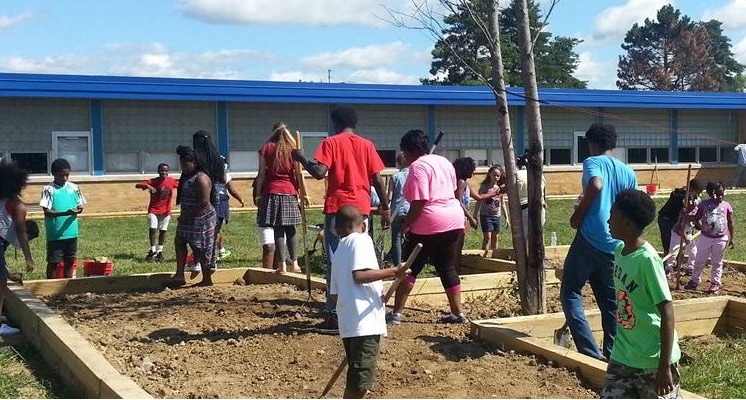Prevention Research Center at the University of Michigan School of Public Health
Populations of Focus: youth, children, women
Topic Areas: violence prevention, sexual health, maternal and child health, drug and alcohol use, physical activity, healthy eating
Introduction, Mission, and Vision
The Prevention Research Center at the University of Michigan School of Public Health (PRC-MI) is one of 26 Prevention Research Centers (PRCs) supported by the Centers for Disease Control and Prevention (CDC) for the 2019–2024 funding cycle. Each PRC is funded to establish and maintain their center and to conduct a core research project. PRCs may receive supplemental funding to conduct additional research projects and activities.
PRC-MI builds on more than 20 years of experience working with community-based organizations in Flint, Michigan, to create safer, healthier futures for residents through applied public health research. It focuses on using community input to help guide its health-promoting interventions.
“We have established long-standing, trusted partnerships with organizations locally and nationally,” said Marc Zimmerman, PhD, director for PRC-Michigan. “Our center focuses on reducing health disparities and promoting health equity through environmental change approaches that engage youth, residents, and community stakeholders as part of the solution.”
Core Research
Each PRC uses a community-engaged approach to conduct one primary applied public health prevention research project called a core research project. Project activities include design, development, implementation, evaluation, and dissemination. PRCs use at least 50% of their CDC funding to conduct the project in partnership with communities.
Health Promotion Through Environmental Design (HPTED)

Children and adults work together to create a community garden in Flint, Michigan.
PRC-MI’s core research project for the 2019–2024 funding cycle adapts a framework called Crime Prevention Through Environmental Design (CPTED) by adding principles of diversity, equity, and inclusion. CPTED is an evidence-based approach that creates secure neighborhoods by making both physical and social environmental changes.
The new project is called Health Promotion Through Environmental Design (HPTED): A Transformative Approach for Community Engagement and Health Equity. It will adapt the CPTED approach to work with communities with limited access to health-promoting resources and adapting it to be more focused on overall health and well-being. The goal of the project is to help residents in and around Flint, Michigan, make positive changes in their neighborhoods.
PRC-MI’s efforts will also include helping communities repurpose available resources (such as vacant land or buildings) and get involved in activities that promote healthy lifestyles. This approach will empower communities and expand residents’ access to the resources they need to lead healthier lives.
“Flint is a midsized Rust Belt city that has experienced significant economic decline and population loss, which has resulted in high rates of vacancy and physical deterioration,” said Zimmerman. “Vacant and neglected spaces contribute to poor mental and physical health outcomes. Yet Flint has a thriving network of community organizations that are collaborating to improve neighborhoods and promote health through environmental change. Instead of imposing a new initiative on a community with limited resources, our approach is to document and evaluate this existing work. This approach supports communities to refine, systematize, and establish an evidence base for their initiatives and improve sustainability and scalability.”
Additional Research
PRCs may receive supplemental funding to work on additional research projects each funding cycle. These Special Interest Projects (SIPs) focus on a variety of health topics or gaps in scientific evidence. PRCs can also conduct additional research as part of SIP Thematic Research Networks, which are groups of PRCs working together on related health topics.
PRC Vaccine Confidence Network (PRC VCN)
In April 2021, CDC funded a 12-month award to all 26 PRCs to form the PRC VCN in support of the agency’s Vaccinate with Confidence strategy for COVID-19. As part of this network, PRC-MI is examining vaccine hesitancy to find ways to promote vaccine confidence, increase vaccine uptake, and reduce disparities in underserved and socially vulnerable communities. The goal is to reduce the incidence of COVID-19 in the United States.
PRC-MI’s strategy includes building and expanding its community partner network to recruit trusted messengers to help share COVID-19 information.

Location: Ann Arbor, Michigan
Principal Investigator: Marc Zimmerman, PhD
Deputy Director: Alison Grodzinski, MLIS
Email: contactprc@umich.edu